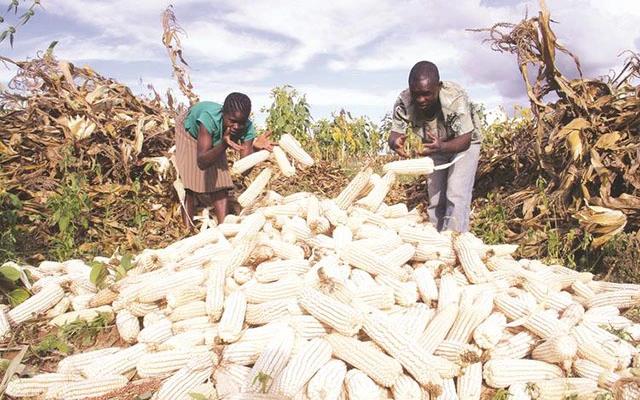Zimbabwe is set to import corn from Brazil for the first time since 2014 as El Niño triggers severe droughts, slashing regional corn yields.
South Africa has seen a 20% reduction, while Zimbabwe’s harvests have plummeted by 60%.
These drastic drops have forced Malawi, Zambia, and Zimbabwe to declare national disasters.
Historically called Africa’s breadbasket, Zimbabwe had a robust agricultural sector that produced large amounts of maize, wheat, and grains.
The other Southern African nations have managed self-sufficiency with occasional imports from South Africa, the region’s primary corn supplier.
However, this year’s crisis has strained the usual supply routes due to similar yield declines in South Africa.

The shortage has pushed local corn prices to record highs.
On Monday, white corn prices soared to 5,518 rands (about $291) per ton during trading on the Johannesburg South Africa Futures Exchange, later closing at 5,512 rands.
This price spike represents a nearly 40% increase since the year’s start.
Reacting to the crisis, Tafadzwa Musarara, president of the Grain Millers Association of Zimbabwe, announced plans to secure over 300,000 tons of corn.
He will lead a delegation to São Paulo this month.
Historically called Africa’s breadbasket
This move is crucial as white corn, essential for dishes like porridge and sadza, is scarce and difficult to source globally compared to yellow corn.
Importing corn introduces significant economic pressures, exacerbated by long transit times and high shipping costs.
These factors contribute to Zimbabwe’s soaring inflation, currently at 55.3%.
Nevertheless, Wandile Sihlobo, chief economist at the Agricultural Business Chamber in South Africa, endorses this strategy.
He forecasts that regional corn supplies will remain tight until early 2025.
This proactive import from Brazil addresses urgent food security needs and illustrates the broader impact of climate variability on agriculture worldwide.
As such, it underscores the importance of adaptive strategies and global cooperation in tackling these challenges.

